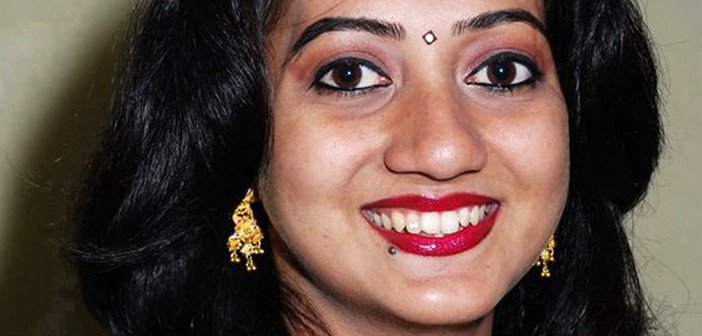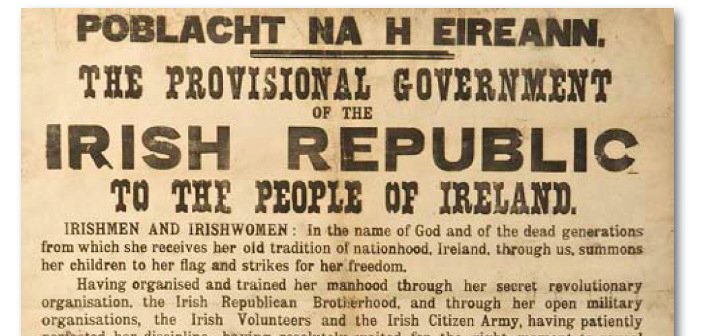Our Constitution is Detached From the Realities of Modern Ireland – It’s Time for a Change
How many of us have ever read our Constitution? How many of us have had ten minutes to kill to sit down and actually see what it says? One might be curious when there are so many issues facing modern Ireland where we hear constitutional change is required. Perhaps it is time to consider whether our Constitution needs to change?
In 1937, the Fianna Fáil government led by Eamon de Valera had civil servants draft a new constitution to replace the Irish Free State Constitution of 1922. This work was largely supervised by legal advisor John Hearne but had a lot of input from religious leaders including notorious protector of child abusers, John Charles McQuaid. This led to a Constitution that, although free from previous references to the British Crown, now had heavily theocratic overtones. What follows is taken from the Preamble to our Constitution – the words that begin our Constitution to this very day:
In the Name of the Most Holy Trinity, from Whom is all authority and to Whom, as our final end, all actions both of men and States must be referred,
We, the people of Éire, Humbly acknowledging all our obligations to our Divine Lord, Jesus Christ, Who sustained our fathers through centuries of trial, [. . .]
Do hereby adopt, enact, and give to ourselves this Constitution.

Talk as much as you like about the social context in which this was written, as long as you keep in mind that such words were always an assault on the key republican concept of separating Church and State. The issue at hand is that this is still how our Constitution begins in 20-goddamn-16. How many people are even aware of this?[pullquote]Talk as much as you like about the social context in which the Constitution was written, as long as you keep in mind that such words were always an assault on the key republican concept of separating Church and State.[/pullquote]
If you believe an all-powerful consciousness created the universe and watched thousands of years of human history before revealing how we should live through scripture, then… Good luck to you. But pandering to such beliefs beyond the general protection of religious freedom in the foundational legal document of a supposed republic cannot be justified. Yet our President and Chief Justice swear their Oath of Office “in the presence of Almighty God” so that God directs and sustains them. There’s also Article 44.1 which proclaims, “The State acknowledges that the homage of public worship is due to Almighty God. It shall hold His Name in reverence, and shall respect and honour religion.”
It is one thing to guarantee freedom of religion as Article 44.2 does but it’s quite another to declare the State and the public are beholden to monotheism. There is also still a prohibition against blasphemy in Article 40.6.1.i The Constitution even ends by saying “Give glory to God and honour to Ireland.” These are the values of a theocracy, not a republic. It might also be surprising to hear that not once in the Constitution does the word ‘republic’ appear. Article 6.1 says power derives “under God, from the people.” The basis of democracy in this country is granted to all, monotheists and polytheists, pantheists and atheists, as a privilege from God; not because it is a human right.

This is completely back-asswards but it explains a lot about so many pressing issues that Ireland faces. The good news is that the Constitution has aged terribly because it has not kept up with the values of Irish people, which are generally, especially among younger people, becoming more progressive. The bad news is that theocracy lingers to hold back reform even in its death throes.[pullquote]The basis of democracy in this country is granted to all, monotheists and polytheists, pantheists and atheists, as a privilege from God; not because it is a human right.[/pullquote]
A referendum to legalise divorce was defeated as recently as 1986. Another referendum to legalise divorce was passed in 1995 but only by a narrow margin and with the provision that a couple must be separated for four years before the divorce can be finalised. Religious fundamentalists fought tooth-and-nail on both occasions to stop other citizens from determining their own marriages, as they did in last year’s referendum on marriage equality. The only controversy that remains is the costly and disruptively-long period of four years that divorce requires, as if a failed marriage is going to turn around in the third year of separation. These days, there would be minimal opposition to reducing that period to two years or even one year but that too would require a referendum.

Even though our Constitution is so detached from the realities of modern Ireland there is a principle underpinning it that it’s “ours.” Any change to the Constitution must be approved by voters in a referendum. This is a remnant of more extensive provisions in the Free State Constitution where voters not only had final say over constitutional change but could introduce a referendum themselves if there was a petition with 75,000 signatures calling for it. This check on government power is practiced in many countries, and calls for its reintroduction have come from groups like 2nd Republic, Reinstate 48, and the One Year Initiative. If only there was some current issue where such a mechanism might be relevant…[pullquote]Even though our Constitution is so detached from the realities of modern Ireland there is a principle underpinning it that it’s “ours.”[/pullquote]
Oh yes, the Eighth Amendment! Women are denied bodily autonomy in a way that would never be denied to men were they in a position to face an unwanted pregnancy. This affront to human rights was the result of the PLAC group in the 1980s, comprised of religious fundamentalists who pressured government parties into holding a referendum; the short-sightedness of which resulted in four subsequent referendums, tinkering with different legal aspects.
The human cost of Article 40.3.3 idiotically equating a human adult’s life to an unborn foetus has been well documented elsewhere. One of the most high-profile cases was the 2012 death of Savita Halappanavar, an Indian immigrant to the supposedly modern multi-cultural Ireland. When she was denied the abortion necessary to save her life, she was told by doctors that “This is a Catholic country.” If a “Catholic country” requires and insists on such barbaric cruelty then it belongs in the sea. Either that, or the Constitution needs change to reflect the different social values of our time.

Are the values of our time reflected in a Constitution that almost exclusively uses male gender pronouns, particularly when discussing elected office? Are the values of all Irish women reflected in Article 41.2.1 which states “that by her life within the home, woman gives to the State a support without which the common good cannot be achieved”? Are our priorities reflected by devoting Article 43 to the right to own private property while never mentioning a right to shelter? When it comes to so many issues that reflect fundamental values about who we want to be as a society, our Constitution would require a lot of referendums to truly make it a “living, breathing document” that the public feel invested in.[pullquote]If a “Catholic country” requires and insists on such barbaric cruelty then it belongs in the sea. Either that, or the Constitution needs change to reflect the different social values of our time.[/pullquote]
The alternative is to hold a referendum to adopt a new Constitution, drafted through a transparent process of public input like Iceland did recently. Oireachtas committees already explored how to modernise our Constitution in the nineties and again in the noughties, yet on both occasions their reports were ignored. This outgoing government held a Constitutional Convention, bringing citizens and politicians together to review the Constitution, but only in narrow, pre-determined aspects.
In spite of this, the Convention showed that such a process can work with a range of strong proposals emerging for political reform, including a resounding 83% endorsement of citizens’ petitions for referendums. However this government’s idea of a ‘democratic revolution’ is ignoring that recommendation and going for a referendum to lower the age of Presidential candidates which only 50% of Convention members wanted. Held on the same day as the marriage equality referendum, it was ignored and the work of the Constitutional Convention could be forgotten like all previous attempts at constitutional reform.

[pullquote]Oireachtas committees already explored how to modernise our Constitution in the nineties and again in the noughties, yet on both occasions their reports were ignored.[/pullquote]
Any campaign for a new Constitution would therefore have to have a lot of political will behind it to keep the momentum going, lest it becomes a dry, isolated discussion that’s easy to bury or scuppered like Iceland’s recent attempt was. A start would be asking politicians, now and after the election, what they will actually do to modernise our Constitution. In fact, why not ask them if they’ve even read the thing?
After all, how many of us have read it? Can we really read that Preamble and say it reflects who we are in 2016? What if we start there, as a new Preamble could express the values of equality a republic actually needs to act on? Humbly submitted below is one possibility, borrowing words from another document that started all of this in the first place, the 1916 Proclamation:
We, the people of Ireland, declare our State to be a sovereign Republic,
Determined to promote goodwill amongst nations
and to foster harmony, security and integrity amongst us and coming generations.
The Republic guarantees religious and civil liberty,
Equal rights and opportunities to all its citizens,
and declares its resolve to pursue the happiness and prosperity of the whole nation and of all its parts, cherishing all the children of the nation equally.
In light thereof, we hereby enact and adopt this Constitution, the supreme law of the State that all must observe.
